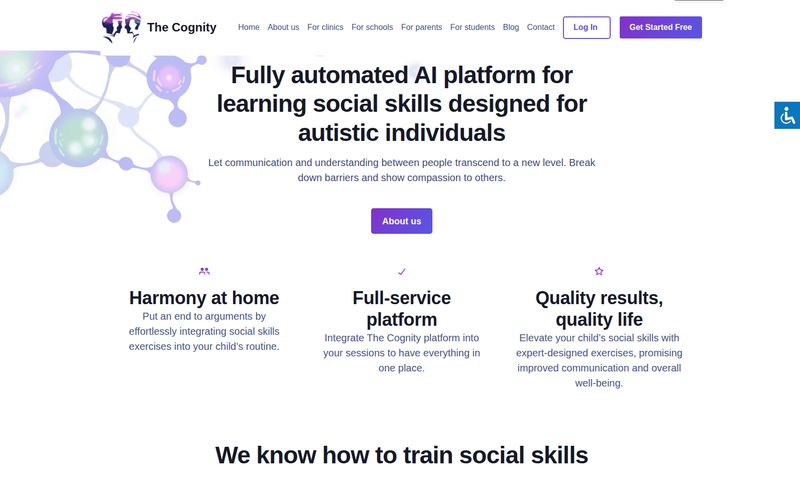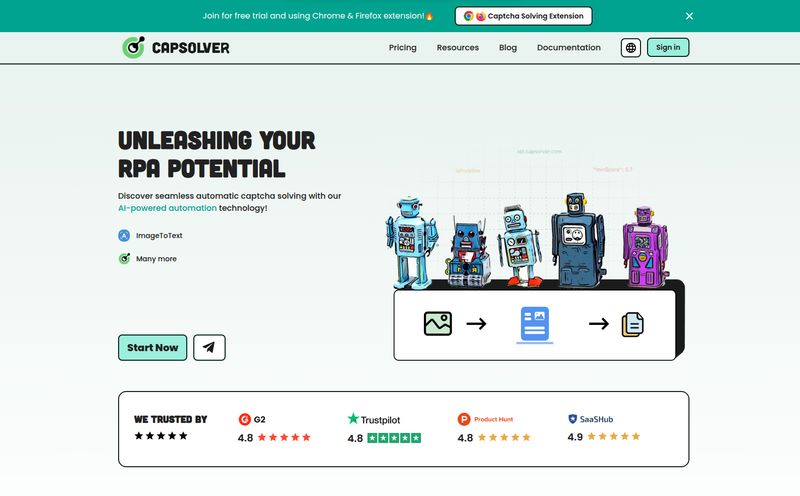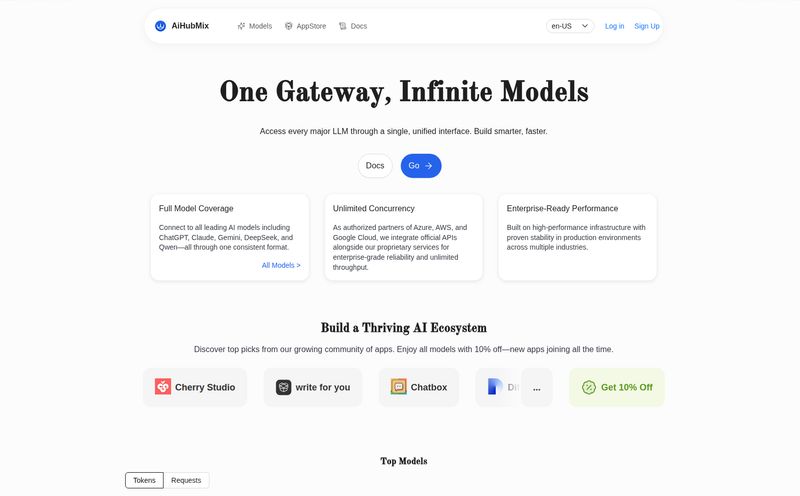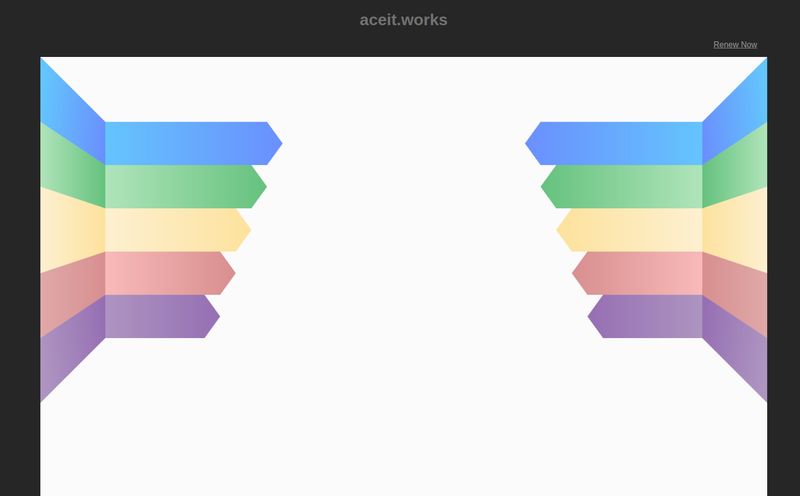As someone who lives and breathes SEO and tech, my days are often spent down the digital rabbit hole of Product Hunt, Hacker News, and obscure GitHub repos. You know how it is. You're looking for one thing, and three hours later you're reading about a new JS framework that promises to solve world hunger. It was on one of these excursions that I stumbled across a name: Devgen. The description was tantalizing—an AI codebase research assistant. My interest was piqued.
We've all been there. Staring at a massive, legacy codebase that feels like trying to read ancient hieroglyphics. It’s a tangled web of dependencies, functions that haven’t been touched since the Obama administration, and comments that just say `// temp fix`. Onboarding new devs is a nightmare, and even seasoned engineers can spend days just trying to get the lay of the land. The idea of an AI assistant to help navigate this? That’s not just a tool; that's a lifeline.
So, What Was Devgen Supposed to Be?
From what I could gather, Devgen wasn’t just another syntax highlighter. It positioned itself as a true research assistant. Think of it like a brilliant, tireless librarian for your entire repository. Instead of manually grepping through thousands of files, you could just… ask questions. The promise was that you could chat directly with your GitHub Issues, Pull Requests, and even individual commits to get quick, precise answers.
Imagine typing, "Where is the user authentication logic handled?" or "What was the reasoning behind the changes in this commit from last Tuesday?" and getting a straight answer. No more bothering the one senior engineer who holds all the institutional knowledge in their head. The potential for boosting developer productivity is just immense. It's the kind of thing that makes you sit up and say, "Okay, that could actually change things."
The Killer Feature That Caught My Eye
But here’s the part that really got me. One of the listed benefits was that it enabled code change reviews with no programming experience required. Let that sink in for a second. What?!
I've sat in countless sprint planning and review meetings where project managers, designers, and QA testers have to take an engineer's word for what a block of code does. Their eyes glaze over during PR reviews. It's not their fault; `const { data } = await fetchData()` might as well be written in Elvish. A tool that could translate the impact of a code change into plain English would be revolutionary for cross-functional teams. It would tear down the wall between the technical and non-technical folks, fostering a level of collaboration we rarely see. Honestly, the idea is just brilliant.
I was ready to sign up, to give it a spin, to write the most glowing review ever. I typed `devgen.xyz` into my browser, my credit card practically leaping out of my wallet, and then… I saw it.
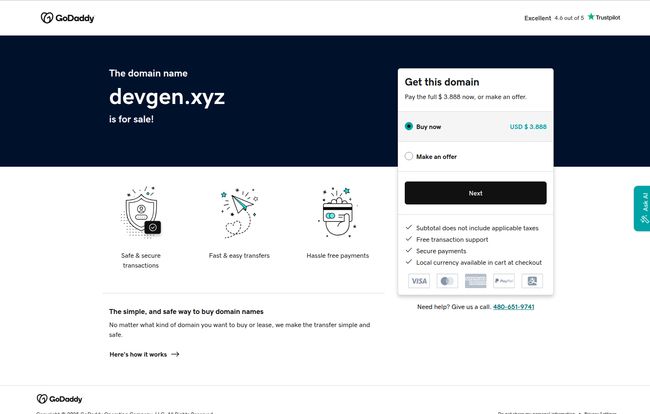
Visit Devgen
The Plot Twist: A Digital "For Sale" Sign
Instead of a slick landing page, I was greeted by a GoDaddy screen. The domain name `devgen.xyz` is for sale. For $3,888.
It was like showing up to the grand opening of a hyped new restaurant only to find the building condemned. What happened here? My mind started racing. Did the founders run out of cash? Was it a side project that someone abandoned? Maybe they were acqui-hired by a big tech company and had to shut down the public-facing tool as part of the deal. Or, in the most mundane scenario, maybe someone just forgot to renew the domain. Whatever the reason, the promising tool I was so excited about was, for all intents and purposes, a ghost.
Even as a Ghost, Devgen's Idea Is Worth Talking About
Okay, so Devgen the product might be gone (or it never truly was), but the idea? The idea is more relevant than ever. We're drowning in code complexity, and the need for tools that can act as translators and guides is critical. The concept behind Devgen points to a future where software development is more accessible and collaborative.
A Universal Translator for Code
A tool like the one Devgen promised to be is essentially a universal translator for code. It helps new developers ramp up in days instead of weeks. It allows senior developers to quickly troubleshoot issues in unfamiliar parts of the codebase. It could even be a secret weapon against technical debt, helping teams understand the dark, dusty corners of their applications before they refactor them.
The Unfulfilled Promise for Project Managers
Let's go back to the non-coders. Empowering a project manager to understand the scope of a pull request without having to tap an engineer on the shoulder is huge. They can see if a "quick fix" actually touches ten different critical files, giving them a better sense of risk and timelines. It's about giving everyone on the team the context they need to make better decisions.
What About Pricing and The Catch?
This part is almost comical in hindsight. The information I found mentioned a pricing page that was empty, which seems fitting for a ghost. So, we'll never know if it was going to be a freemium model, a per-seat license, or something else entirely. There was also a small catch: it apparently required the Chrome browser. In the grand scheme of things, a browser-specific limitation is a tiny hurdle, especially when compared to the much larger hurdle of, you know, not existing.
Are There Any Alternatives to the Ghost of Devgen?
Thankfully, the spirit of Devgen lives on in other tools that are very much real. If you were as excited as I was by the concept, you're not out of luck. The space of AI code assistants is booming, and there are a couple of fantastic options out there that deliver on a similar promise:
- GitHub Copilot Chat: Since Devgen was built around GitHub integration, it makes sense to start here. Copilot has evolved from simple code completion to a full-blown chat assistant that can explain code blocks, help you debug, and generate documentation. It's baked right into the developer workflow.
- Sourcegraph Cody: This is another powerful contender. Cody is an AI coding assistant that has a deep understanding of your entire codebase. You can ask it questions about how your code works, where things are defined, and it can even help you write and fix code based on that context. It's incredibly smart.
While neither may have explicitly marketed the "no-code review" angle for PMs quite like Devgen, they are definitely heading in that direction of making code more understandable for everyone.
A Requiem for a Great Idea
So, Devgen is a bit of a tech ghost story. A tale of a brilliant idea, a promising tool, and a mysterious disappearance. It's a stark reminder of how fleeting things can be in the startup world. But I'm not sad about it. I'm excited. Because the very existence of the idea of Devgen, even in its spectral form, proves that we're asking the right questions. We're pushing for tools that don't just help us write code faster but help us understand it better—together. And that’s a future worth building, with or without a `devgen.xyz` domain.
Frequently Asked Questions
- What was Devgen?
- Devgen was pitched as an AI-powered codebase research assistant designed to help developers and non-developers read and understand large codebases, chat with GitHub issues and pull requests, and simplify code reviews.
- Why can't I access the Devgen website?
- The domain name for the tool, devgen.xyz, has expired or was put up for sale. As of late 2023, it's listed on GoDaddy for purchase, meaning the original website and tool are no longer active at that address.
- How much did Devgen cost?
- Information on Devgen's pricing is unavailable. The link to its pricing page was reportedly empty even when the tool was being promoted, so its intended cost was never made public.
- Was Devgen a good tool?
- It's hard to say definitively since it vanished, but its promised features were excellent. The ability to simplify code for non-programmers and provide quick, contextual answers from a codebase would have made it incredibly valuable for team productivity and collaboration.
- What are some real alternatives to Devgen?
- Great, functioning alternatives include GitHub Copilot Chat and Sourcegraph Cody. Both are powerful AI assistants that can help you understand, debug, and navigate your codebase.
- Why is a tool like Devgen needed?
- Modern codebases are increasingly complex. Tools like the one Devgen aimed to be are needed to speed up developer onboarding, improve collaboration between technical and non-technical teams, and make managing large-scale software projects more efficient.
Reference and Sources
- GitHub Copilot: https://github.com/features/copilot
- Sourcegraph Cody: https://sourcegraph.com/cody
- Devgen Domain Listing: GoDaddy Auction Page for devgen.xyz (Note: This link may become inactive if the domain is sold or the listing expires).
